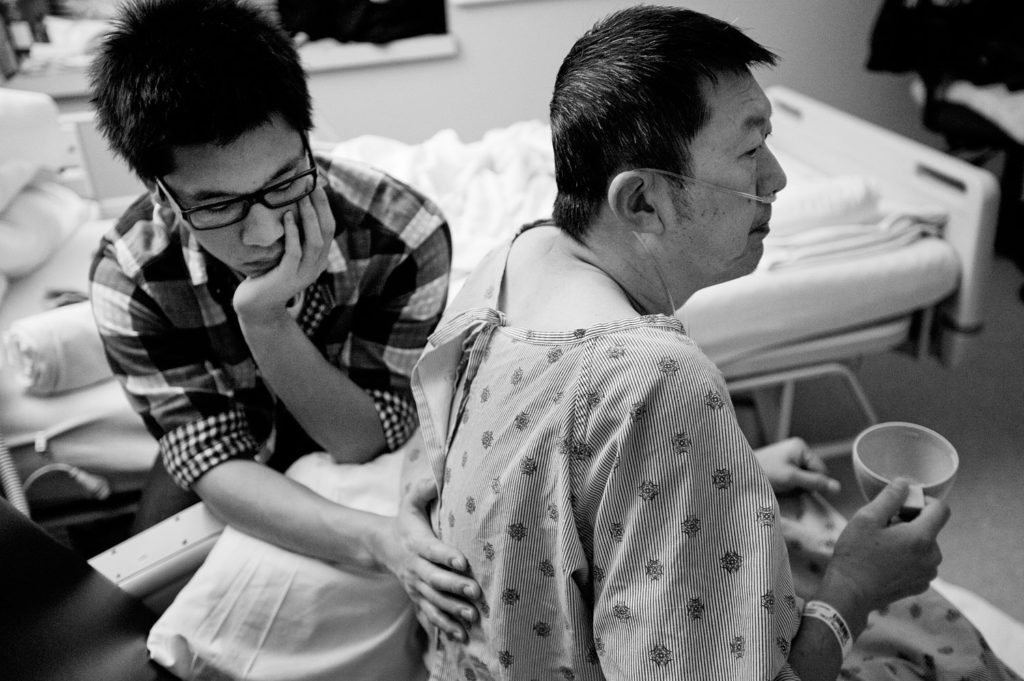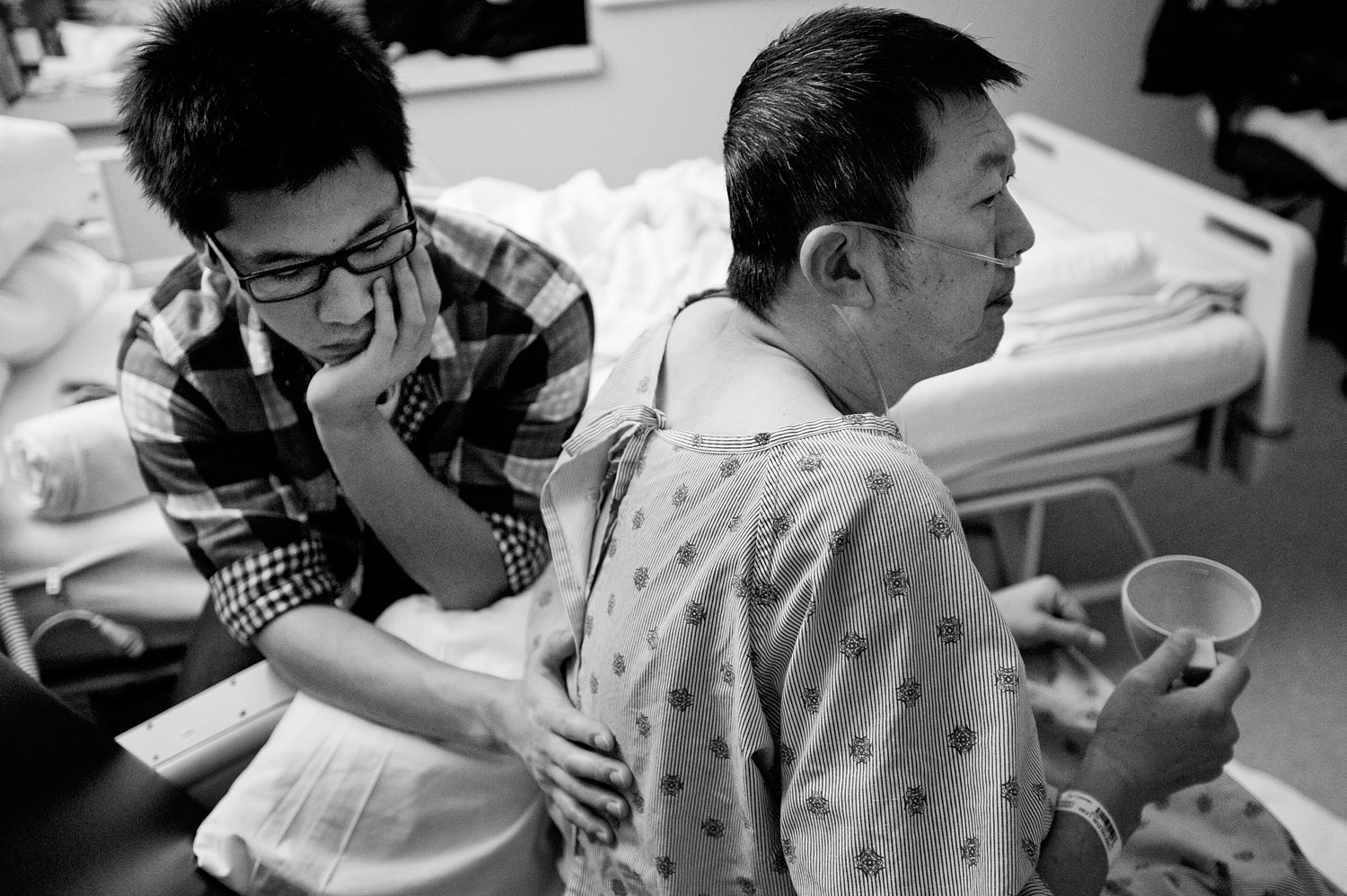Terry Ting

My dad was difficult to talk to. For the most part, his presence often put an awkward mood in the air.
I had to be just a little more alert, stand a little straighter and be extra conscious about what I was about to say to him or anybody else in the room. Because of this, I often didn’t say a single word. The silence meant I was safe from reprimand.
Our relationship shifted from one extreme to another when I learned he was going to die. All of a sudden, I felt uncomfortable and ashamed with myself for not knowing whom my father was underneath his unrelenting shell.
I had so much time. I had so many opportunities to ask and learn about his philosophies, but I never did; the mood was never “right” enough to initiate that sort of conversation.
As we had our private moment, in the patient’s room, he explained that he was saddened, but not regretful nor guilty. He cannot change the past. He cannot ask for more time. We can only do as much as our time allows.
If we see our glass half empty, we can never do enough to fill it. Our life will always end with us knowing there are things we will not get to experience. In these moments, look back on life and just be grateful with what you have accomplished; because that’s all you can do.
Twelve days later, my dad passed away. He was 50 years young. The cancer that spread into his lungs suffocated him. In his last hours, I suppressed my emotions enough to assist in the infusion of morphine into his bloodstream every 10 minutes.
This effectively made him drowsy and pain-free. He was also equipped with a bi-pap breathing machine, which delivered 50 percent oxygen into his lungs. The doctors, however, warned me they could not help with the eventual angst of drowning and breathlessness.
Dad panicked at 10 p.m. He grimaced, squirmed and drew in deep breaths. We all rushed to his side and he outstretched his hands for security. I held on to him and was surprised by his forcefulness. Our bond was sturdy, for the moment.
He was conscious. He could see us. He communicated his anxiety through the pain on his face and the feeling of his grip in my hand. I was by his side, as close as I could be, holding on, yet I was helpless.
Just before he relaxed into unconsciousness, I remember the moment where he looked at his wife, then Ronald, then Annie and then me. This was his farewell. His head fell back into his chair, and his breathing decelerated to a normal pace. His eyelids were gentle and his grip around my hand slackened.
In his last words, he told me what I’ve been used to hearing my entire life, to “work hard.” It’s what you would expect from someone who lived a simple man’s life. He was not creative with words. He was not the most popular or richest of his friends.
We cannot judge whether he lived righteously or reproachable, however, he certainly did whatever he could to provide for me in the old fashioned tradition: through hard work.


Shoot & Tell: Terry Ting "Dad"




